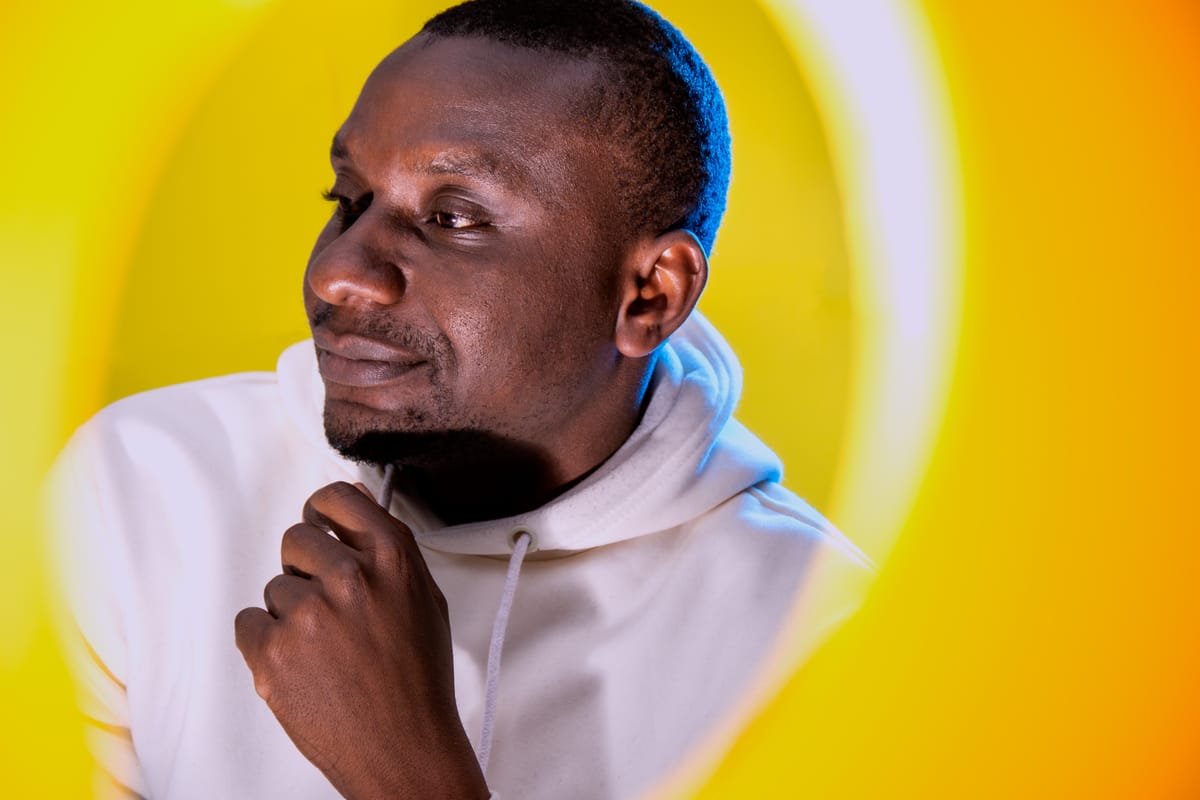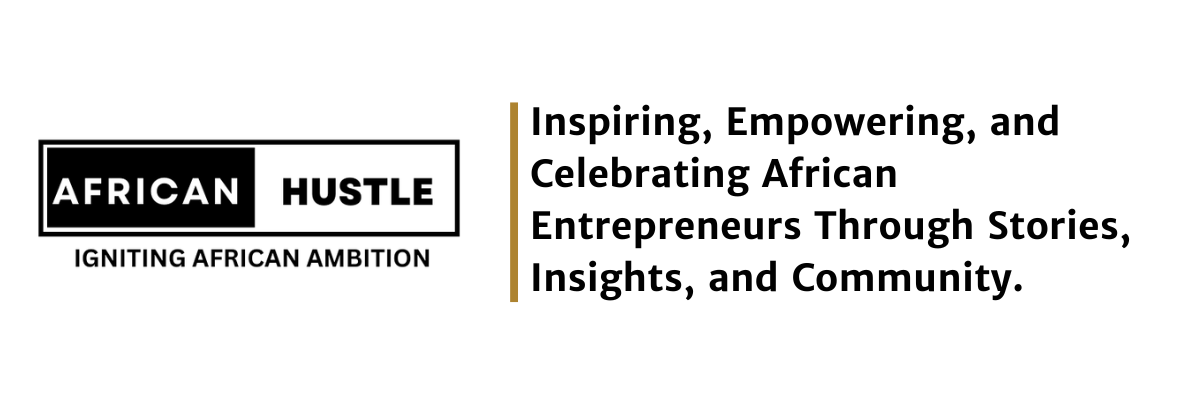
Welcome to African Hustle! Your bi-weekly dose of inspiration and smart insights into African entrepreneurship — featuring real stories about tech, culture, startups, founders, and innovations shaping the future of the continent.
Did You Know
Africa is much larger than it is often depicted on traditional maps. Our continent can fit multiple large countries like the United States, China, India, Japan, and Mexico within its boundaries with room to spare.
Feature Story
I grew up on stories of American startups founded in garages. We relished the stories of how Apple, Microsoft, Amazon, Disney and HP all had their humble beginnings in garages.
Growing up in a home with no car and no garage, these tales always had a fairytale-like vibe. Whenever I visited wealthier relatives, I’d look at their garages and wonder if these were the theatres of dreams where billion-dollar startups could be created.
But those dreams felt as distant as the companies behind them.
That is, until I came across iKhokha and Derivco, both born not in Durban garages.
The Derivco Story
Derivco isn’t a household name because the people who use its platforms rarely see its fingerprint. But behind the scenes, it designs and develops world-class online gaming software and has quietly grown into one of Durban’s biggest tech employers.
Founded in 1996 by Martin Moshal, it is the brains behind many of the online casino and betting games people play.
Today, Derivco has a valuation north of R5 billion.
And it started in a garage.
The iKhokha Story
The Durban garage fairy worked its magic again in 2012, when Matt and Clive Putman, together with Ramsay Daly, founded iKhokha.
Back then, South Africa’s card payment ecosystem was a playground for rich retailers, hoteliers, and corporates. Township retailers, spaza owners, and small businesses were left stranded.
When I moved to South Africa in 2018 and opened my first shop, I experienced this firsthand. Getting a card machine from the big four banks felt like asking for the keys to Fort Knox.
Then I discovered iKhokha. I bought their card machine at a hardware store and registered it online. The same day, I was accepting card payments.
As my business grew, I needed working capital. The banks looked the other way. But iKhokha stepped in, most importantly, it did so without me applying. A notification popped up on my machine offering me R50,000 in funding, repayable through a small percentage of future swipes.
That simple, innovative approach to SME finance is how a startup can make an impact. And when you make an impact, people are bound to notice.
iKhokha understood the market. SMEs contribute 40% to South Africa’s GDP, and the informal market adds up to 10%. Yet for some reason, these segments were overlooked by banks. iKhokha filled the gap.
Today, iKhokha processes over R20 billion in digital payments annually and has disbursed more than R3 billion in working capital to SMEs. I’m proud to be among the beneficiaries.
What entertains you trains you.
More of our entrepreneurs and youth need to hear these African garage startup stories.
That way, they will focus less on where they are and more on where they want to be.
Show me the heroes that the youth of your country look up to, and I will tell you the future of your country.
If our heroes are celebrities and influencers, our future will be shallow. But if our heroes are builders like Martin Moshal or the iKhokha triumvirate, our future will be bankable.
Who are your heroes, and what are you building with the people you trust the most?
Family + Friends in Business
We’ve all heard it being said, “Don’t work with family or friends.” It’s been repeated so many times that it sounds like gospel.
I have a different proposition, though.
If you can’t trust your friends or family in business, maybe you’re in the wrong circle.
Matt and Ramsay were school friends, and Clive is Matt’s father. They built a billion-rand company together. Isn’t it more beautiful to create wealth with those closest to you, so that one day, no one needs to ask you for money?
Lessons From the Garage
Here are my takeaways from iKhokha and Derivco’s journeys:
🔔 Africa has garages, too. Garages where billion-rand businesses can be born.
🔔 Build with people you trust. Family and friends can be co-founders if respect and clarity exist.
🔔 Solve local problems. iKhokha tackled SME payments. Derivco tapped into the global love of gambling, sorry, gaming, I mean.
🔔 Distribution matters. iKhokha’s card machines reached retail shelves before most knew the name.
🔔 Make data-informed decisions.
🔔 Choose patient capital. Investors like Apis, Crossfin, and IFC supported iKhokha until the right exit.
🔔 Culture scales. Mission-driven teams attract and keep top talent.
🔔 Execution beats pitch decks. R20 billion processed says more than any slide.
🔔 Exits are possible in Africa. Billion-rand deals prove that global-class businesses can be built here.
Hard Questions for Us
If you don’t mix business with family or friends, what exactly are you doing with those closest to you to create generational wealth?
Which local problem are you actively solving, not just theorising about?
If a bank or strategic partner called today, would your numbers make your business attractive for acquisition?
Everything we desire and admire about the diaspora can be done in Africa, too.
We can build billion-rand dreams from humble beginnings.
Even better, we can collaborate with those closest to us without walking on eggshells.
And most importantly, we can succeed while we’re at it.
Today I’ll leave you with this question. Who are your heroes, and what are you building with the people you trust most?
P.S. If Durban garages keep turning out billion-rand ideas, I’m packing my bags and relocating.
Inspiration Corner
Beyond the R1.65 billion Nedbank acquisition
Today, Matt, Clive, and Ramsey are all the inspiration we need. It’s not every day you hear of a startup founded in a garage growing into a company acquired by a leading bank for more than a billion rand.
But what sparked the idea?
It began with Matt’s frustrating experience using a major bank’s card payment product while co-owning a nightclub during his university years.
Putman recalls that he subscribed to Fortune and Time magazines to stay up to date on innovation trends in places like the U.S., where the internet revolution was in full swing. One Fortune article in particular stood out. It profiled Twitter co-founder Jack Dorsey’s new venture, a payments company called Square, now Block.
That article was all it took to ignite the fire.
What if mobile phones could be used to help small businesses accept card payments, a service no one had yet introduced in South Africa?
Driven by this vision, the team designed and built a prototype card machine that plugged into an iPhone using Apple’s old 30-pin dock connector, found on the iPhone 3 and iPhone 4.
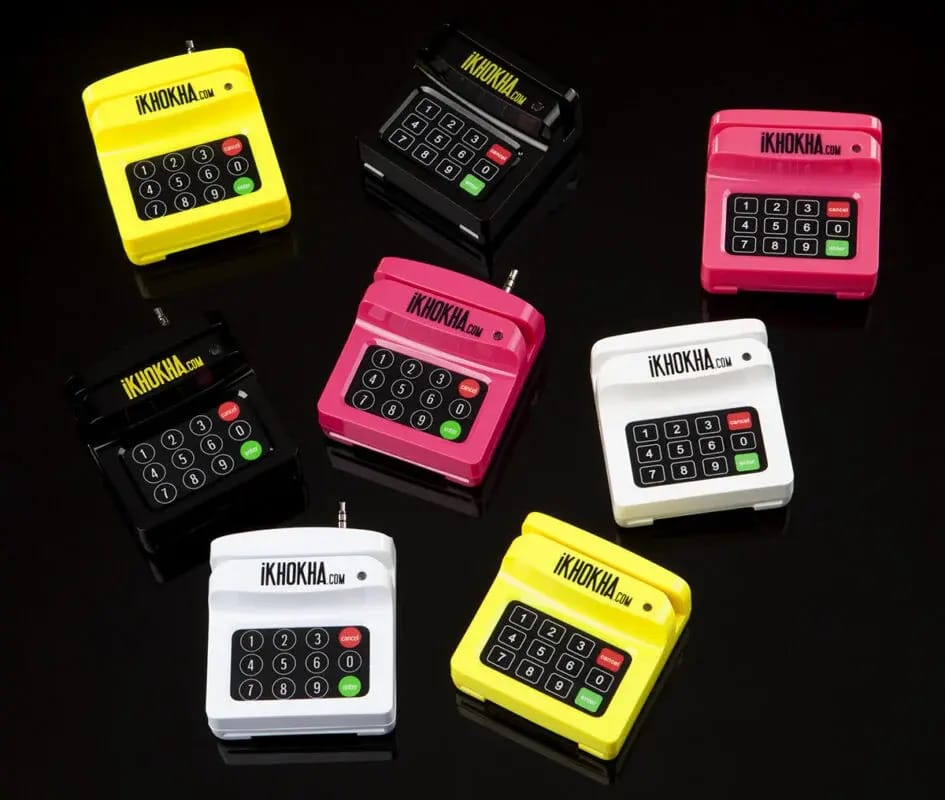
Original iKhokha hardware
At first, the prototype could only read a card number. But even that was enough to secure their initial seed capital.
Putman says the card machine eventually became the first South African-developed device to be fully certified by International Card Schemes and PCI.
The journey wasn’t easy. “There were times we literally lived month-to-month. Depending on how we performed, we would find out if we could even make payroll,” Matt recalls.
Fast forward to today, their company has been acquired for an astounding R1.65 billion.
Book Byte
Zero to One by Peter Thiel and Blake Masters
The next Bill Gates will not build an operating system. The next Larry Page or Sergey Brin won’t make a search engine. And the next Mark Zuckerberg won’t create a social network. If you are copying these guys, you aren’t learning from them.
Of course, it’s easier to copy a model than to make something new. Doing what we already know how to do takes the world from 1 to n, adding more of something familiar. But every time we create something new, we go from 0 to 1. The act of creation is singular, as is the moment of creation, and the result is something fresh and strange.
Opportunity Alert
Tractor Mechanisation
There is a huge unmet need for tractor mechanisation in African farming, with only about 5% of farmland currently ploughed by tractors.
Most farmers rely on manual labour or animal power, which limits productivity and income.
This gap creates a promising business opportunity to bridge tractor access to smallholder farmers, who cannot afford to own equipment but will pay for efficient, affordable tractor services.
A digital platform or app that connects tractor owners with farmers on demand can revolutionise farming by increasing yields, reducing labour costs, and generating economic uplift in rural communities.
Such a business can scale by managing fleets of tractors, enabling shared access, optimising usage, and providing financing solutions.
Proven models like Hello Tractor demonstrate how this approach significantly boosts productivity and income, while creating employment opportunities.
Investing in tractor service platforms addresses Africa’s vast potential for agricultural growth and food security, capitalising on the growing demand for mechanisation to tap into a multi-billion-dollar sector with strong social impact.
Practical Tools
MailChimp
Mailchimp is a powerful email marketing platform that helps entrepreneurs create attractive email newsletters, easily share them on social media, and track campaign performance with detailed analytics.
It centralises subscriber data to keep contacts organised and provides features like automated email workflows, send-time optimisation, advanced reporting, and customizable design options.
Mailchimp offers a Free plan suitable for up to 500 contacts and 1,000 emails per month, with basic templates and reporting.
Hustle Trivia
Which 14th-century African ruler is widely considered the wealthiest person ever to live and is known for having wealth so vast that it is considered beyond description?
Mansa Musa (1280-1337), King of the Mali Empire
Founder Insights
Be Authentic and Passionate
Authenticity and genuine interest in what you are building are critical. Founders driven primarily by money or status tend not to succeed in the long run.
Deep personal involvement in the project motivates perseverance through inevitable challenges.
Cheat Codes
Be kind when others aren’t, lighten the load where you can, and be a pleasure to deal with.
People never forget those who make life easier and brighter.
Community Billboard
10th AFRICA ENERGY INNOVATION COMPETITION (AEIC)
The 10th AEIC mobilises early-stage young energy entrepreneurs across Africa to develop a prototype/upscale a key device/equipment for social enterprise, agri-business, fintech solutions or energy management systems using local resources.
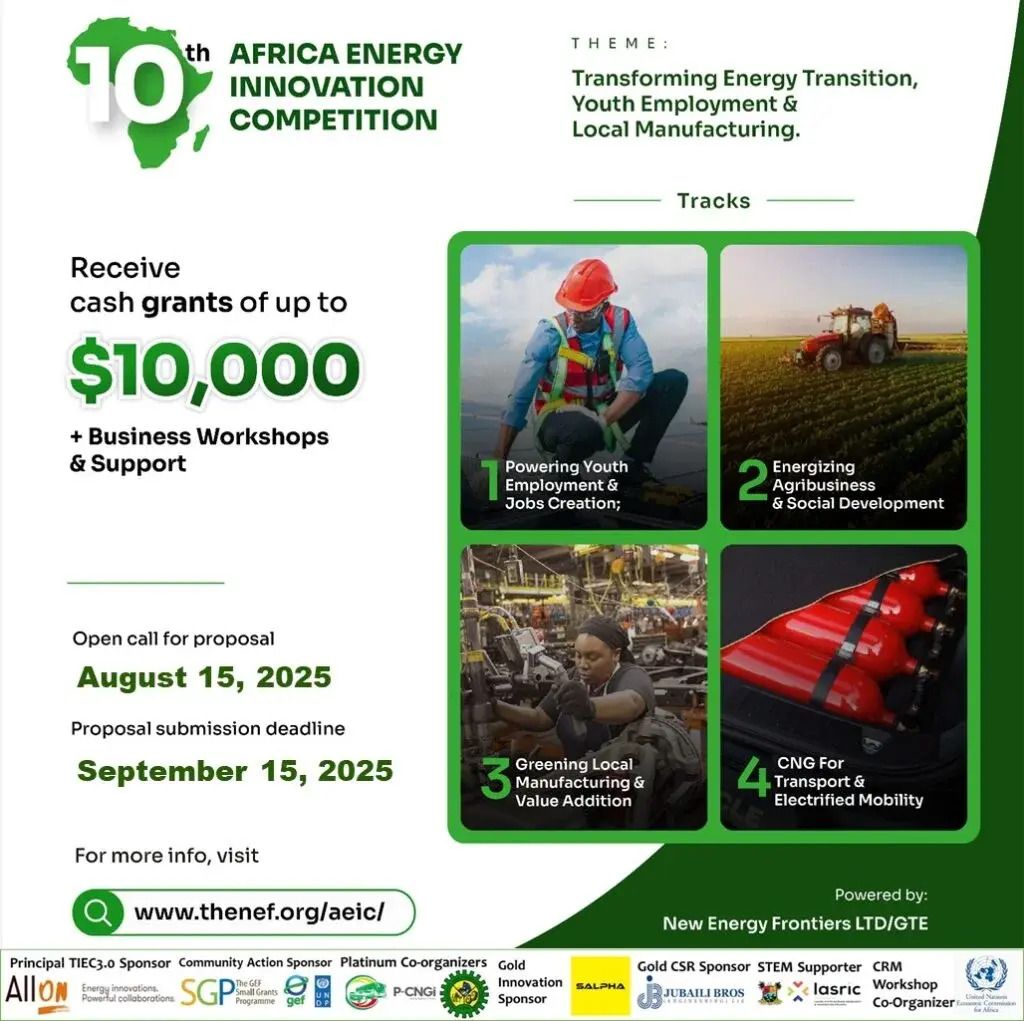
Young professionals between the ages of 18 and 35 years from Africa are invited to participate in the competition.
Winners of the competition get the opportunity to receive cash prize grants of up to US$10,000 to demonstrate or scale the proposed solution.
Briefly
The South African Reserve Bank (SARB) has extended access to the National Payment System to non-bank fintechs. Previously, participation was restricted to established banks. Now, SARB is enabling fintechs, including mobile and wallet-based players, to enter, aligning with its modernisation agenda.
Burkina Faso suspended a Gates Foundation-funded research program whose researchers were working to create a species of mosquito that won’t transmit malaria. The program released its first swarm of genetically modified male mosquitoes in 2019 in Bana, a village in western Burkina Faso.
Egypt's stock market has launched its first mobile app to make it easier for everyone to follow and invest in stocks. The app offers live stock data, news, and updates on market performance. The goal is to encourage more everyday people to start investing and to help modernise and increase transparency in Egypt’s financial system.
Abu Dhabi’s Space42 is in talks to raise funds to help the satellite communications company expand in Africa and challenge Elon Musk’s Starlink service, which already operates in 18 countries on the continent.
Kenya aims to raise funding from citizens living abroad and initially plans to sell a so-called diaspora bond of as much as $500 million. The East African nation is in talks with a World Bank unit on how to structure the security.
Afrofact
The DRC is the most water-rich country in Africa. It accounts for approximately 52% of Africa's surface water reserves and 23% of Africa's internal renewable water resources.
Strategies & Philosophy
Move fast and break things.
Emulate a culture of speed and experimentation, similar to Facebook’s early philosophy, but mature it over time to stabilise.
ShoutOut
Uzair Essack
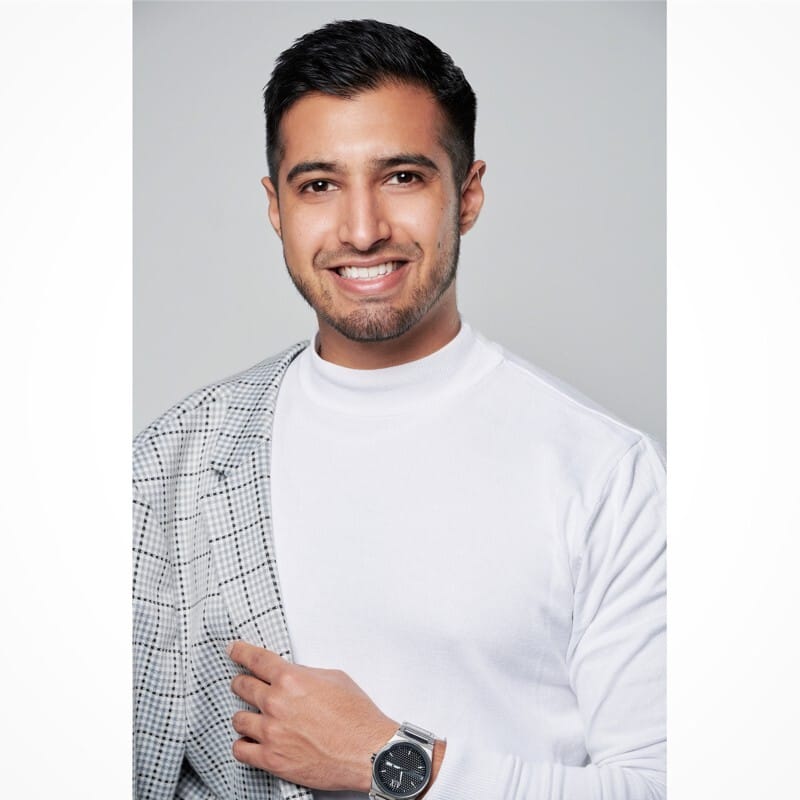
Essack is a true African hustler.
He runs several franchisees, including PostNet and Xpresso Café.
But most importantly, Essack is the founder of Riyp. At Riyp, he oversees the export of a wide range of premium African agricultural produce to more than 48 countries across Europe, the Middle East, Asia, and beyond.
Essack has been recognised as a Forbes 30 Under 30 honoree and featured in prestigious media outlets such as CNN and GQ.
Proverb of the Week
If the panther knew how much he was feared, he would do more harm.
Recognise your capabilities and the influence you have on others.
Enjoyed this post? Share it with someone who might find it helpful and encourage them to subscribe!
If we missed something, we’d love to hear from you — hit reply and let us know what insights you want us to dive into next.
And if this email was forwarded to you, you can sign up here!
